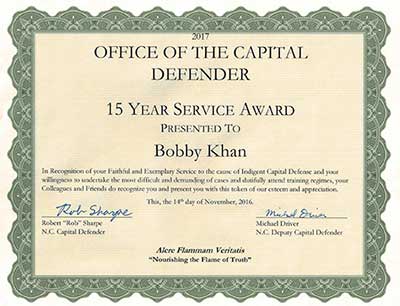 Misdemeanors in North Carolina are placed into different classes, depending on the seriousness of the criminal offense, and range from a class 1A or class 1 misdemeanor NC to a class 3 misdemeanor NC. The penalties differ according to the classification. While the name misdemeanor may seem minor, this type of offense can adversely impact an individual’s employment and other opportunities in the future and should be taken seriously. Consulting with an attorney experienced in criminal misdemeanors is important since an attorney may be able to negotiate for a lower sentence and fines.
Misdemeanors in North Carolina are placed into different classes, depending on the seriousness of the criminal offense, and range from a class 1A or class 1 misdemeanor NC to a class 3 misdemeanor NC. The penalties differ according to the classification. While the name misdemeanor may seem minor, this type of offense can adversely impact an individual’s employment and other opportunities in the future and should be taken seriously. Consulting with an attorney experienced in criminal misdemeanors is important since an attorney may be able to negotiate for a lower sentence and fines.
Types of Misdemeanors
North Carolina misdemeanors are categorized into four classes: A1, A, B and C. The most serious offense is A1, which carries the highest penalties. Each category is for specific offenses from the most egregious to the least.
Types of Penalties
In addition to a fine, an individual convicted of a misdemeanor may be sentenced at the discretion of the judge to either active, intermediate or community punishments. While active punishments involve jail time, the other two types are imposed at the judge’s discretion as alternate types. These may include drug treatment, house arrest, probation, community service or educational programs. Penalties associated with all misdemeanors in North Carolina may vary depending on whether the plaintiff has a previous conviction record and the number of convictions involved.
Class 1A Misdemeanor NC
An A1 misdemeanor encompasses the most serious offenses. This charge may result in a fine chosen by the judge as appropriate and a jail sentence of up to 150 days. Charges of this type can include various types of assault, including aiming a gun at another person, peeping into a room at another person without his or her knowledge while in possession of a photographic device and first offense stalking.
Class 1 Misdemeanor NC
A class 1 misdemeanor in North Carolina can carry a jail sentence of up to 120 days, along with a fine deemed appropriate by the judge. Types of misdemeanors categorized as class 1 offenses include forcible trespass, various types of larceny such as possessing or receiving stolen goods valued at under $1,000, trespassing on public lands and possession of drug paraphernalia.
Class 2 Misdemeanor NC
A class 2 misdemeanor includes lesser offences such as disorderly conduct, simple assault, trespassing on land with a motorized all terrain vehicle, indecent exposure or cyberstalking. Penalties can include jail time for up to 60 days and a fine of up to $1,000.
Class 3 Misdemeanor NC
A class 3 misdemeanor NC is the least serious type but still carries penalties that may adversely affect an individual. This charge carries a penalty of up to 20 days jail time and a fine of $200. A class 3 misdemeanor may include marijuana possession or hunting without a license.
Previous Convictions
Having previously been convicted of a misdemeanor increases penalties when accused of a new misdemeanor. An individual with no previous convictions is categorized as Level 1. Those with one to four previous convictions are categorized as Level 2, and individuals with five previous convictions or more are placed in Level 3. The previous misdemeanor convictions of an individual will be calculated into the penalties assigned to the new case.
Why a Plaintiff Needs an Attorney for Misdemeanor Charges
Misdemeanors, just as other criminal charges, require the services of legal representation skilled in defending these types of charges. For example, an attorney can examine whether your civil rights were violated. If there is sufficient evidence to show that an individual committed an offense, a plaintiff may receive a reduction of the charges or a dismissal. In addition, an attorney can examine if certain evidence in the case might be suppressed by the judge so that it cannot be used against the individual during a trial.
When You Are Charged with a Misdemeanor
Individuals charged with a misdemeanor appear in court and may either plead guilty or not guilty. An attorney may negotiate a plea agreement to lower charges and/or fines. In some instances, participation in counseling or community service might lead to a dismissal of the case, depending on the judge’s discretion. Pleading not guilty means the case will go before a judge. After hearing the evidence, the judge will rule and, if an individual is found guilty, will impose penalties ranging from fines to incarceration. If convicted, an individual has the right to appeal to a higher court where the case would be heard by a jury.
Contact an Attorney When Facing a Class 1 Misdemeanor NC or Other Charges
When an individual is faced with a misdemeanor criminal charge, a conviction may adversely impact that individual’s future in terms of renting a house, finding employment or in other areas. An attorney experienced in handling misdemeanor cases, such as a class 3 misdemeanor NC, can assist by reviewing the charges, examining evidence and preparing a defense to lower fines and other penalties or to have the charge dismissed if sufficient evidence is lacking in the case. Call 704-774-6426 today.


 Misdemeanors in North Carolina are placed into different classes, depending on the seriousness of the criminal offense, and range from a class 1A or class 1 misdemeanor NC to a class 3 misdemeanor NC. The penalties differ according to the classification. While the name misdemeanor may seem minor, this type of offense can adversely impact an individual’s employment and other opportunities in the future and should be taken seriously. Consulting with an attorney experienced in criminal misdemeanors is important since an attorney may be able to negotiate for a lower sentence and fines.
Misdemeanors in North Carolina are placed into different classes, depending on the seriousness of the criminal offense, and range from a class 1A or class 1 misdemeanor NC to a class 3 misdemeanor NC. The penalties differ according to the classification. While the name misdemeanor may seem minor, this type of offense can adversely impact an individual’s employment and other opportunities in the future and should be taken seriously. Consulting with an attorney experienced in criminal misdemeanors is important since an attorney may be able to negotiate for a lower sentence and fines. If you have made regrettable mistakes in the past that you have since overcome, you may be eligible for an expungement in NC. Expungement and record sealing, which conceals or destroys any public records of criminal offenses and accusations, varies from one state to another. Expungement in North Carolina allows leeway if you have been accused and cleared of a crime or sustained a misdemeanor or low-level felony. The laws in North Carolina are often more lenient than those in other states, but there are still some limitations you should be aware of before applying for expungement.
If you have made regrettable mistakes in the past that you have since overcome, you may be eligible for an expungement in NC. Expungement and record sealing, which conceals or destroys any public records of criminal offenses and accusations, varies from one state to another. Expungement in North Carolina allows leeway if you have been accused and cleared of a crime or sustained a misdemeanor or low-level felony. The laws in North Carolina are often more lenient than those in other states, but there are still some limitations you should be aware of before applying for expungement. Clients often question our Union County criminal attorney about arrests, booking procedures and
Clients often question our Union County criminal attorney about arrests, booking procedures and  Union County criminal attorney Bobby Khan has represented many cases where the evidence being used to prosecute his client was gathered violate to the constitutional rules for search and seizure. There is a definite protocol for seizing evidence that often gets overlooked when an overzealous officer is wanting to arrest an individual but cannot find adequate reasonable suspicion to search for probable cause.
Union County criminal attorney Bobby Khan has represented many cases where the evidence being used to prosecute his client was gathered violate to the constitutional rules for search and seizure. There is a definite protocol for seizing evidence that often gets overlooked when an overzealous officer is wanting to arrest an individual but cannot find adequate reasonable suspicion to search for probable cause.

